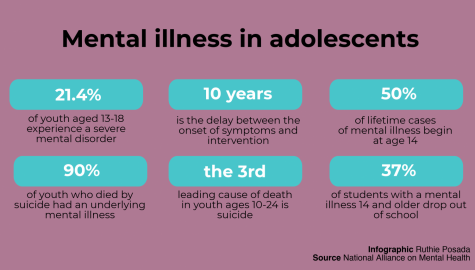
Photo Credit: Emily Ziessman
This spring Heilicher welcomed Lynn Lyons, a psychotherapist and Licensed Clinical Social Worker, to speak to the community about "How to Break the Worry Cycle". Heilicher alumna Ruthie P. shares her thoughts on the night in a recent article in The Echo, St. Louis Park High School's newspaper.
As universal anxiety rates in children and teens continue to rise, Heilicher Minneapolis Jewish Day School Head of School Yoni Binus said he thought inviting a psychotherapist to come speak to parents and staff would benefit the school’s community.
“Anxiety is an issue on the forefront of our parents minds, our teachers minds and our students minds,” Binus said. “We thought the language she uses and her experiences would speak to our community.”
Psychotherapist Lynn Lyons came from New Hampshire to speak May 13 at the Heilicher. Lyons said anxiety is normal, but being knowledgeable about it is helpful in overcoming stress.
“It’s not that complicated, and it’s a very universal part of being a human being, so the more you know about it and the more you understand about it the less mysterious and overwhelming it is,” Lyons said.
Art teacher and Park parent Aimee Orkin, who attended the workshop, said even though anxiety is natural, the effect it has stems from the extent at which one allows it to control their life.
“Anxiety is a real reality and everybody feels it, but it’s how much you let it take over your life or just put it away,” Orkin said.

According to Lyons, adults have a large influence over their children developing mental illnesses and insists parents learn to avoid reflecting those feelings onto their children.
“Adults have a huge impact on how children see the world and a big component to anxious kids is what anxious adults model. I want (adults) to pay attention to their language. I want them to recognize the way they do things and react to things (is) how kids learn,” Lyons said.
Orkin said sadness is an acceptable feeling to have, but can be prevented by parents displaying love toward their children.
“It’s OK to be sad, it doesn’t mean you’re always going to be sad. Being OK with being uncomfortable with your kid and loving them through it, and getting them not to be isolated,” Orkin said.
Lyons said when parents install tracking systems within their children’s phones, it bars them from being able to learn from their mistakes and overcome hardships independently.
“I certainly would like parents to stop tracking their kids on cell phones,” Lyons said. “I’m hoping parents will allow their kids in a supporting and loving way to make mistakes and feel distress and be uncomfortable and learn they can manage it.”
Although someone with anxiety may feel it’s perpetual, Lyons said you have the ability to overcome anxiety through facing those obstacles and helping your brain refurbish.
“It is treatable. It’s not a permanent condition and the way anxiety gets stronger is through avoidance, and the way that anxiety gets better is being able to step into things and allow your brain to relearn,” Lyons said.
Binus said ignoring your feelings will only cause anxiety to escalate.
“Not trying to actively avoid (anxiety) is really a good idea because trying to actively avoid will accelerate the focus on whatever you’re worried or anxious about,” Binus said.
In regards to helping teenagers overcome struggles with anxiety, Lyons said high schoolers should focus on assessing the three ex’s, expect, externalize and experiment.
“I want (teens) to learn about the mind-body connection. I want them to experiment,” Lyons said. “The three ex’s I say often times to high school students is that we’re going to expect where to show up because you’re learning new things and you’re stepping into new things. We’re going to externalize it, (and) we’re going to pull it out so you can have some distance from your own thinking. Then we’re going to experiment by stepping into situations and allowing the brain to relearn through experience.”
- mental health
- parent education


